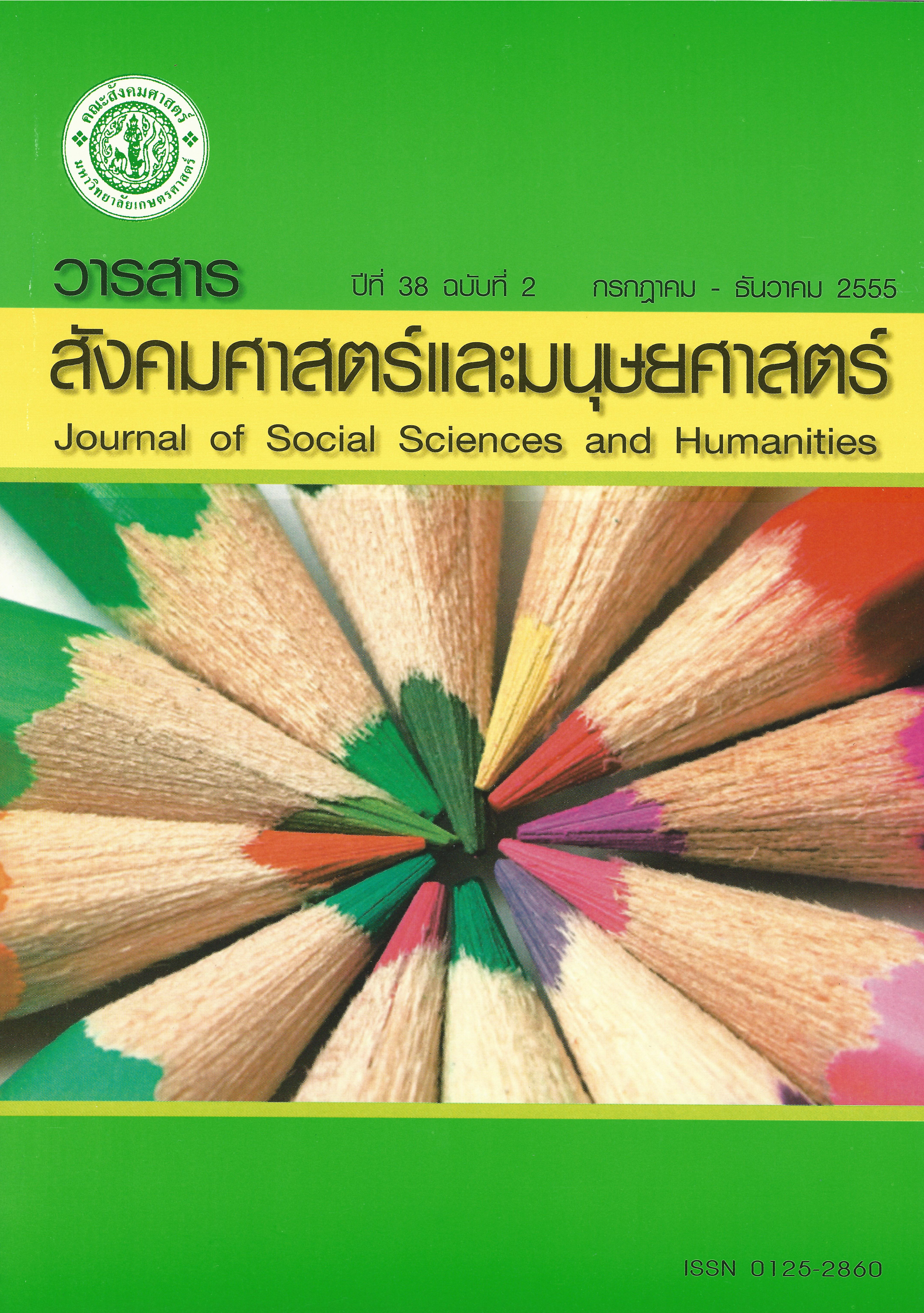การศึกษาเปรียบเทียบความเป็นอิสระและผลการดำเนินงานระหว่างองค์การมหาชนกับกรมในประเทศไทย
Main Article Content
บทคัดย่อ
การวิจัยครั้งนี้เป็นการศึกษาเปรียบเทียบความเป็นอิสระและผลการดำเนินงานระหว่างองค์การมหาชนกับกรมในประเทศไทย ซึ่งมีสถาบันพัฒนาองค์กรชุมชน (พอช.) สังกัดกระทรวงการพัฒนาสังคม และความมั่นคงของมนุษย์เป็นตัวแทนขององค์การมหาชน และกรมการพัฒนาชุมชนสังกัดกระทรวงมหาดไทย เป็นตัวแทนของกรม คำถามในการวิจัย คือ จริงหรือไม่ หากองค์การมหาชนมีความเป็นอิสระมากกว่ากรม จะมีผลการดำเนินงานที่ดีกว่าด้วย วิธีการศึกษา คือ การสัมภาษณ์เชิงลึกเจ้าหน้าที่รัฐทั้งสิ้น 42 คน ประกอบกับการศึกษาเอกสารงบประมาณ รายงานประจำปี และผลการประเมินตามคำรับรองการปฏิบัติราชการ เพื่อใช้ในการวิเคราะห์และประมวลผล การศึกษาแบ่งออกเป็น 2 ส่วนคือ ส่วนที่ 1 เป็นการวิเคราะห์และเปรียบเทียบ ความเป็นอิสระขององค์การระหว่างพอช. และกรมการพัฒนาชุมชน ในเรื่องของความเป็นอิสระในด้านกระบวนการบริหารงาน ด้านการกำหนดกฎระเบียบข้อบังคับด้านการบริหารการเงินงบประมาณ ด้านการบริหารทรัพยากรมนุษย์ และด้านการตรวจสอบประเมินผล ส่วนที่ 2 เป็นการวิเคราะห์และเปรียบเทียบผลการดำเนินงานระหว่าง พอช.และกรมการพัฒนาชุมชน ใน 3 มิติที่ประกอบด้วย มิติที่ 1 คุณภาพของกระบวนการปฏิบัติงาน มิติที่ 2 ประสิทธิภาพด้านการเงินงบประมาณ และมิติที่ 3 ประสิทธิผลในการดำเนินงาน
จากการศึกษา พบว่า พอช. มีความเป็นอิสระมากกว่ากรมการพัฒนาชุมชนในด้านการบริหารงานการกำหนดกฎระเบียบ การบริหารการเงินงบประมาณ และการบริหารทรัพยากรมนุษย์ อย่างไรก็ตามทั้งกรมการพัฒนาชุมชนและพอช. มีประสิทธิผลในการปฏิบัติงานในระดับเดียวกัน และทั้งสองต่างไม่มีประสิทธิภาพในด้านการเงินงบประมาณอีกด้วย ดังนั้นจึงสรุปได้ว่า แม้ว่า พอช.จะมีความเป็นอิสระมากกว่ากรมการพัฒนาชุมชน แต่ทั้ง พอช.และกรมการพัฒนาชุมชนมีผลการดำเนินงานเท่ากัน การนำแนวคิดการสร้างหน่วยบริหารงานอิสระของฝ่ายบริหารมาใช้ในประเทศไทยจึงยังไม่ประสบผลสำเร็จอย่างน้อยที่สุดก็ในกรณีของ พอช.
COMPARING THE AUTONOMY AND PERFORMANCE OF AUTONOMOUS PUBLIC ORGANIZATIONS AND GOVERNMENT DEPARTMENTS IN THAILAND
This study compared autonomous public organizations (APOs) with government departments in Thailand in terms of their autonomy and performance. Community Development Department (CDD) of the Ministry of Interior was chosen to represent a government department. The autonomous public organization chosen for investigation was the Community Organization Development Institute (CODI) of the Ministry of Social Development and Human Security. The research question was: When APOs have more autonomy than government departments, would that result in higher performance on the part of APOs? The study conducted in-depth interview with forty-two government officials in both CDD and CODI. Documentary research such as annual reports, government documents, and budgetary documents were also used. The study was divided into two parts. Part 1 analyzed and compared CDD and CODI in terms of their organizational autonomy (operational autonomy, rule making autonomy, financial and budgeting autonomy, human resource management autonomy, and monitoring and evaluating autonomy). Part 2 also compared CDD and CODI in terms of their performance appraisal covering three dimensions: operating quality, financial and budgeting efficiency and performance effectiveness.
The study found that CODI had more autonomy than CDD in terms of operational autonomy, rule making autonomy, financial and budgeting autonomy, and human resource management autonomy. However, both CODI and CDD had the same level of performance effectiveness. They both did not have financial and budgeting efficiency. The conclusion was that although CODI had more autonomy than CDD, its performance was equivalent to that of the CDD. As a matter of fact, agencification in Thailand has not been so successful at least in the case of the CODI.


